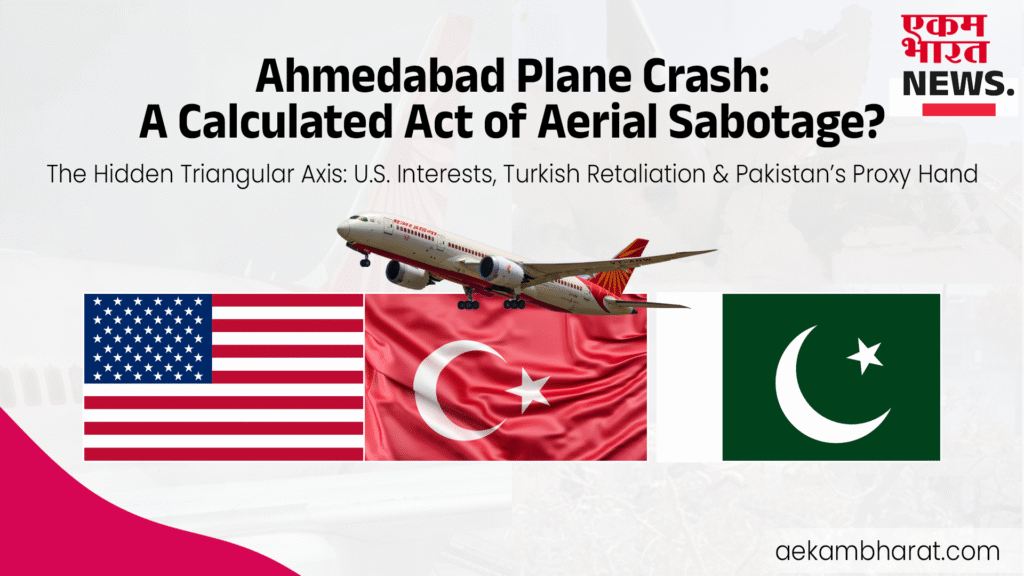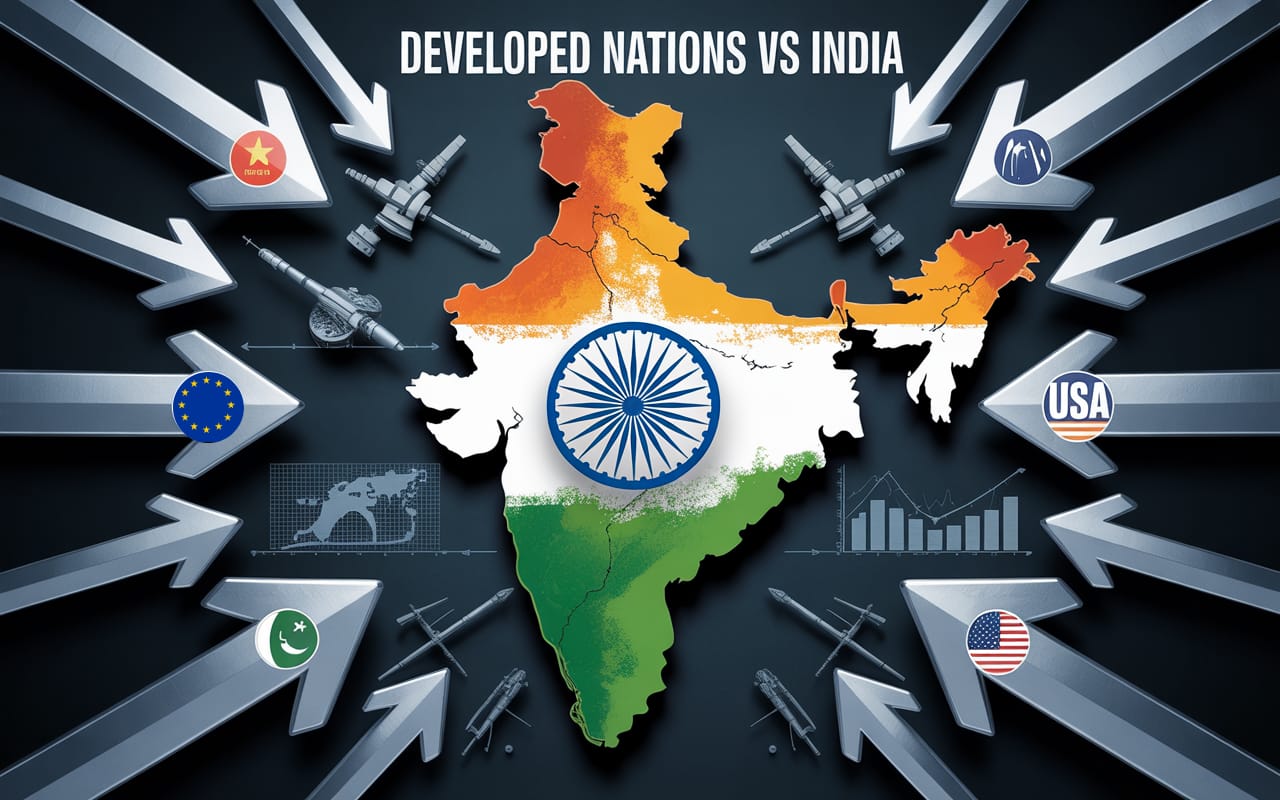The Hidden Triangular Axis: U.S. Interests, Turkish Retaliation & Pakistan’s Proxy Hand
On a calm morning in Ahmedabad, a tragedy unfolded as a commercial aircraft plummeted from the sky under mysterious circumstances. But as investigators comb through the debris, what if this wasn’t just another tragic accident? What if the crash is the culmination of a covert global vendetta playing out in India’s skies?

Let’s examine a chilling theory that connects three powerful nodes — the United States, Turkey, and Pakistan — all of which have had recent friction with Indian strategic interests. When viewed through the lens of Operation Sindoor, the dots begin to align disturbingly well.
- Operation Sindoor: India’s Stealth Strike That Shook Pakistan’s Deep State
India’s secretive Operation Sindoor, launched with surgical precision, didn’t just strike terror bases in Pakistan — it metaphorically shook Islamabad’s very foundations. The most shocking element? The Indian strike targeted jihad-linked hostels, not just military camps. This move blurred the line between battlefield and safe haven — a clear message that no sanctuary is safe.
Pakistan’s Need for a Symbolic Payback:
Pakistan’s military-intelligence establishment, unable to respond militarily without risking escalation, might have turned to covert retaliation, using proxies and international partners to deliver an asymmetric counterstrike. Could the Ahmedabad crash be part of this retaliation?
- Celebi & Turkish Technic: The Sudden Crackdown
Two major Turkish entities operating in India were recently stripped of contracts and security clearance:
Celebi, a Turkish-linked ground handling firm, was abruptly dropped from major Indian airports. Turkish Technic, the aircraft maintenance arm of Turkish Airlines, lost its Indian associations, suspected of indirect ties with anti-India elements.
These moves weren’t random. They came after intel reports flagged concerns of infiltration, data leaks, and questionable personnel affiliations.
Why Turkey?
Turkey under Erdoğan has increasingly aligned with Pakistan in the global Islamic coalition, often voicing support for Kashmir. Ankara’s ambitions of becoming the voice of the Muslim world places India at odds with its ideological outreach.
Was India’s crackdown on these Turkish firms a preemptive strike against espionage or sabotage? And was the plane crash a signal that this conflict would escalate beyond business and borders?
- The U.S. Connection: Boeing and Silent Skies
The aircraft in question was reportedly a Boeing-made jet. While Boeing has a solid track record, recent global controversies and whistleblower reports have raised concerns over structural flaws, software backdoors, and sabotage potential. Moreover, the U.S.’s dual role as both Pakistan’s occasional benefactor and arms provider complicates the picture.
Hypothesis:
Could there have been a covert software implant in the aircraft’s control systems, lying dormant and remotely triggered? Electronic hijacking or cyber-interference, using satellite-based signals, is not the stuff of fiction anymore.
Let’s not forget — right after Operation Sindoor, Pakistan was suddenly blessed with an IMF bailout, $40B from the World Bank, and $800M from ADB. Was this economic lifeline a reward for remaining a proxy battleground for U.S. and Turkish interests?
Made chairperson of UN anti terror body.
Asif munir invited in US Army day celebration as guest.
- Forensic Anomalies: Evidence of Sabotage?
No Bird Strike: Eyewitnesses and initial assessments confirm no visible signs of bird activity.
No Fire or Smoke: Engines showed no combustion damage, eliminating traditional causes of crash.
NO Straight Nose Dive: Typically indicates loss of control, guidance failure, or deliberate override.
- Connecting the Dots: The Real Possibility of Air Sabotage
Putting it all together:
India neutralized jihad bases and exposed safe houses.
Pakistan, unable to retaliate militarily, turned to asymmetric channels.They tried hard to hit back our collage, Hospitals school hostels and religious places but remaine unsuccessful but this plane hit medical collage their hostel and mess.
Turkey, facing corporate backlash in India, possibly collaborated via ex-Celebi or Turkish Technic operatives.
The U.S., managing conflicting regional alliances, offered plausible deniability via Boeing systems.
The Result?
An act of surgical psychological warfare — not on the battlefield, but in the public psyche. A message: “You’re not safe anywhere — even in the sky.”
Final Thought: Is This India’s MH370 Moment?
Just as Malaysia Airlines Flight 370 vanished under enigmatic circumstances, the Ahmedabad crash risks being dismissed as “technical failure” — but the geopolitical currents around it suggest a deeper story. One that demands more than just aviation audits — it calls for a national security overhaul, forensic cyber-investigation, and a global diplomatic offensive.




